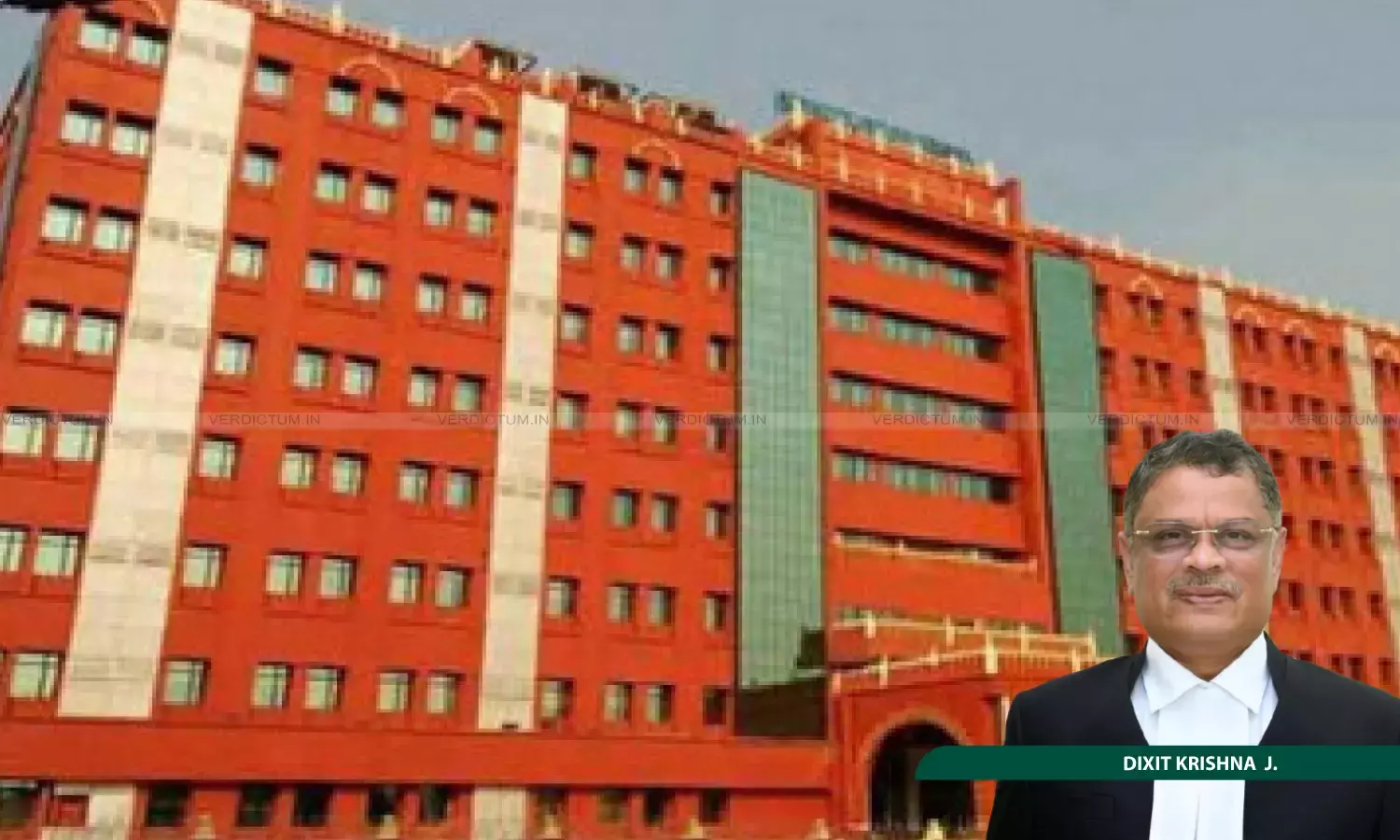Time Taken For Procuring Requisite Certificates Should Be Excluded While Computing Limitation: Orissa High Court Asks State To Consider Case Of Compassionate Appointment
The daughter of a deceased peon had approached the Orissa High Court whose application for compassionate appointment had been rejected.

Justice Dixit Krishna Shripad, Orissa High Court
While remitting a matter of compassionate appointment to the State, the Orissa High Court has held that while computing the period of limitation, be it one year or two years, the time taken for procuring the requisite certificates should be excluded.
The daughter of a deceased peon had approached the High Court whose application for compassionate appointment had been rejected.
The Single Bench of Justice Dixit Krishna Shripad held, “A person cannot be asked to perform the impossible, in the sense that he should obtain all these certificates within the prescribed limitation period. Unless these certificates are produced, the application for compassionate appointment will be incomplete and therefore suffers rejection. Law does not expect anyone to do the impossible, vide lex non cogit ad impossibilia (“Maxwell on The Interpretation of Statutes”, 12th Edn. page-326). Therefore, while computing the period of limitation, be it one year or two years, the time taken for procuring the requisite certificates should be excluded. An argument to the contrary would defeat the very solemn purpose for which Rehabilitation Rules are promulgated as a State Policy.
M/s. Lingaraj Mohanty represented the Petitioner while Addl. Standing Counsel J.K. Khandayatray represented the Respondent.
Factual Background
The Petitioner’s father, who was working as Peon in KSUB College, Bhanjanagar, died in harness in the year 2010. Petitioner, being the daughter, filed an application seeking appointment on compassionate grounds. One lady, Ranjani Nayak, claiming to be the widow of the deceased, objected to the application. Therefore, the petitioner obtained a legal heir certificate. The said Ranjani filed a Miscellaneous Appeal against the grant of a legal heir certificate, which came to be dismissed by the Sub-Collector.
The Governing Body of the College, meanwhile, forwarded the petitioner’s application, recommending her case for compassionate appointment. A Distress certificate was issued, but the application was rejected on the sole ground that it was time-barred in terms of Rule 7(5) of OCS (RA) Rules, 2020. Aggrieved thereby, the petitioner approached the High Court.
Reasoning
Referring to the OCS (RA) Rules, 2020, the Bench explained that the extant Rules require that the applicant has to produce vouching material such as Death Certificate, Legal Heir Certificate, Distress Certificate, along with the application for compassionate appointment. These certificates have to be applied for and obtained only after the demise of the breadwinner.
As per the Bench, the matter ought to have been referred to the Government for considering whether there was a delay and if there was any, the same merited condonation. This course, having not been adopted by the Director, the impugned order suffered from a grave legal infirmity to the enormous prejudice of the petitioner.
The Bench stated, “This Court does not subscribe to the contention of learned ASC that any specific prayer for condonation of delay ought to have been made in the very application itself, if not separately. While construing social welfare legislations like RA Rules, one has to take into account the realities of life and its underlying policy content & intent. Otherwise, it ceases to be “living law of the people” to barrow the phrase of Austrian jurist Eugen Ehrlich (1 September 1862 – 2 May 1922). Purposive construction of law of the kind would advance its laudable object whereas literal interpretation would defeat it.”
The Bench further mentioned that such Rules are rightly called Compassionate Appointment Provisions and therefore, while construing their provisions, compassion should be the substratum or undercurrent. Otherwise, the State will not bring Welfare Governance, which the Constitution of India ordains.
“Lastly, the impugned order is made keeping in view the provisions of 2020 Rules, when 1990 Rules were applicable, the bread winner having died on 20.12.2010. Under the 1990 Rules, there is a provision for condonation of delay vide Rule 9(11), whereas such a provision is conspicuously absent in 2020 Rules, which prescribed a limitation period of two years vide Rule 7(5). Thus, there is a gross non-application of mind to the legal position and to the material borne out by records. But for that, the application of the petitioner would have been favoured”, it held.
Allowing the Petition, the Bench issued a Certiorari quashing the impugned order; and remitted the matter to the State with a direction to decide the same afresh within an outer limit of three months. “If delay is brooked, OP No.1 shall pay to the petitioner Rs.500/- (rupees five hundred) only per day from his pocket and not from the public money”, it ordered.
Cause Title:Rasmita Nayak v. State of Odisha (Neutral Citation: W.P.(C) NO. 32953 OF 2024)
Appearance
Petitioner: M/s. Lingaraj Mohanty, Advocates P. Pattanaik, T. Sahoo
Respondent: Addl. Standing Counsel J.K. Khandayatray

